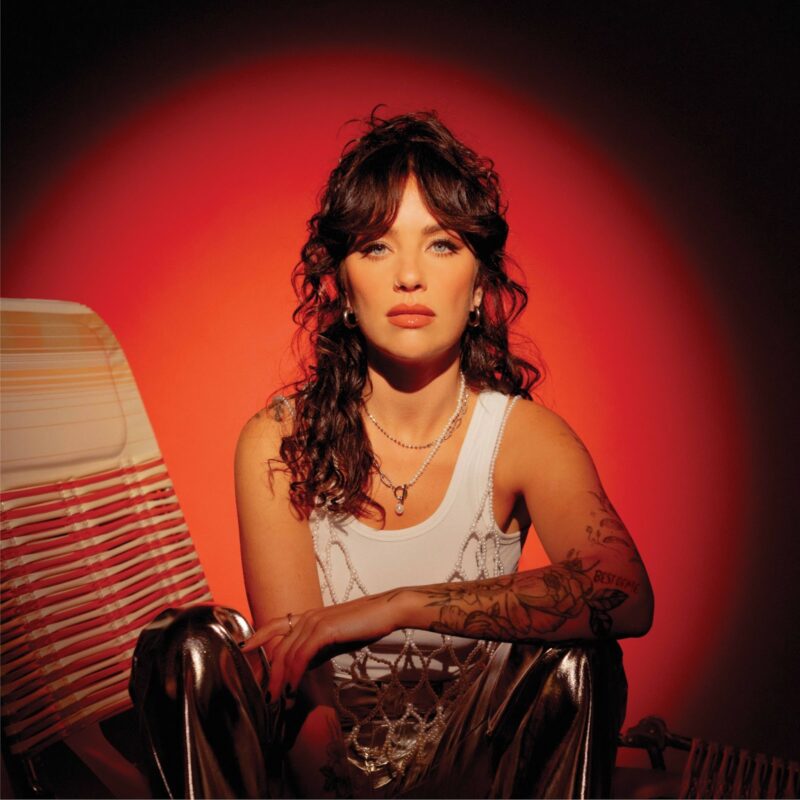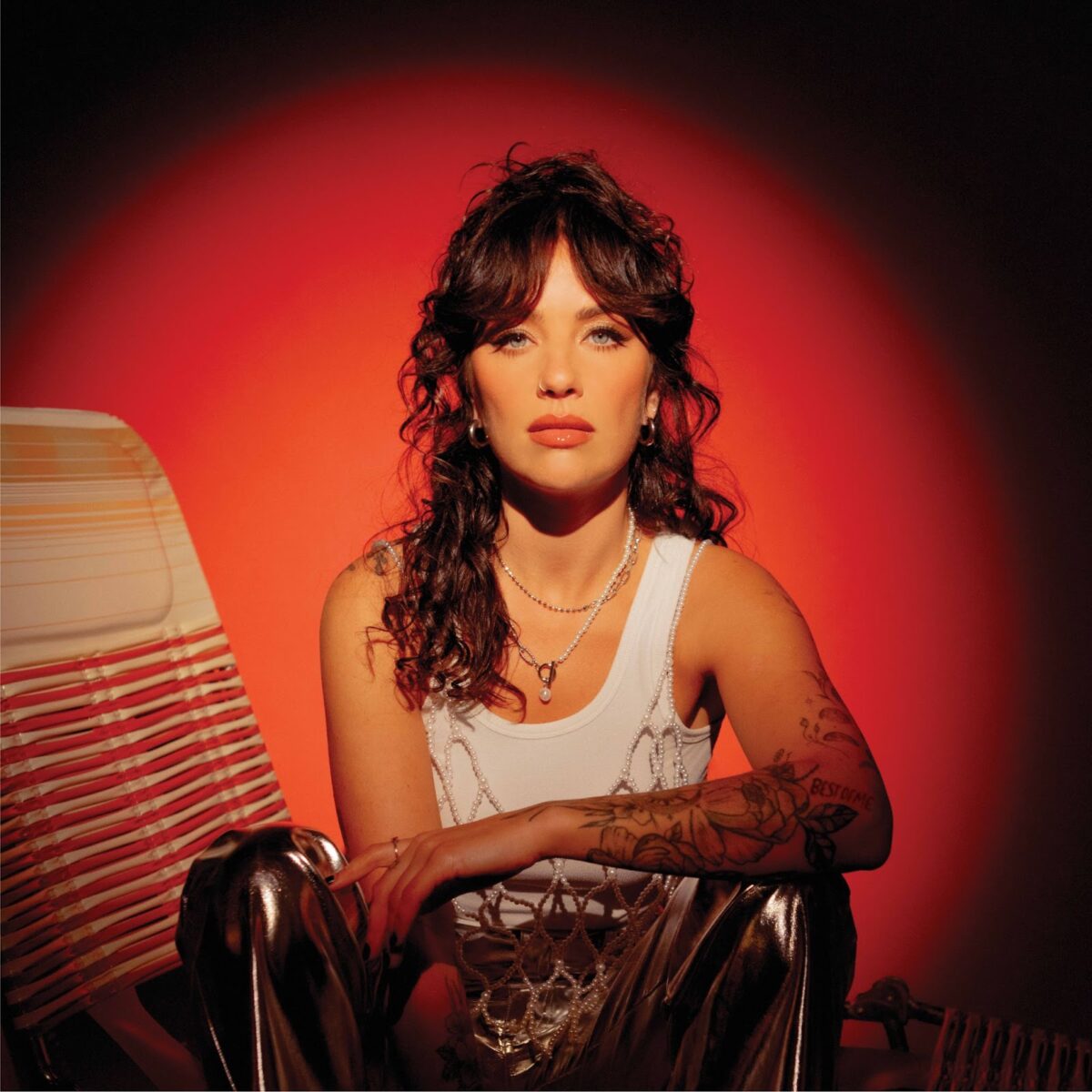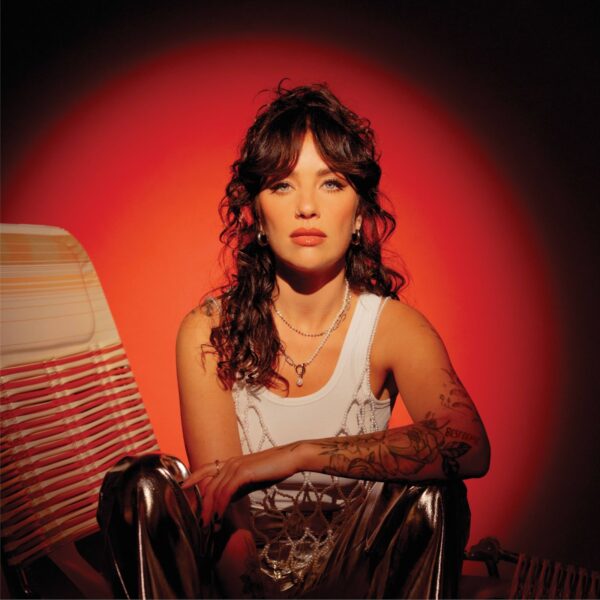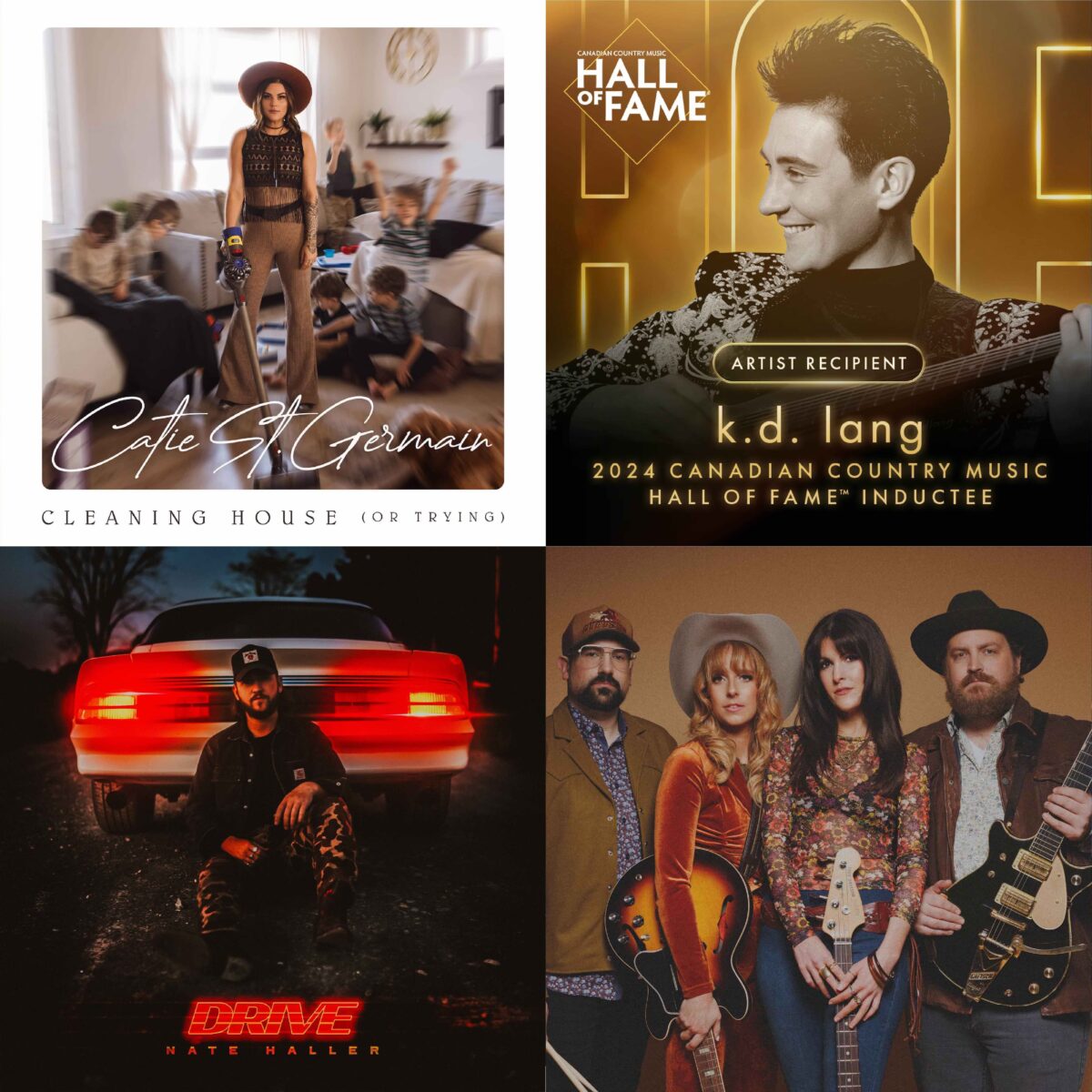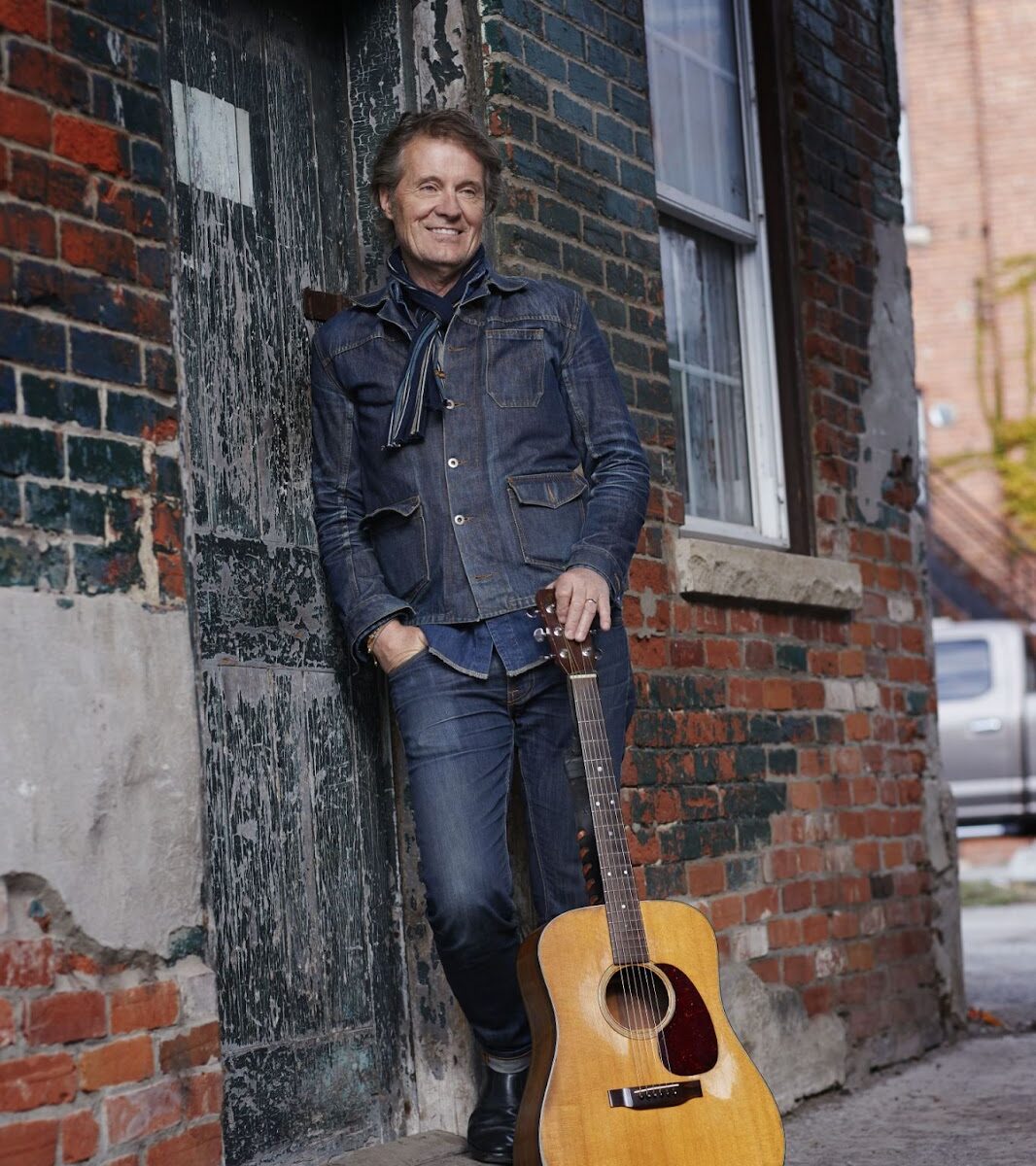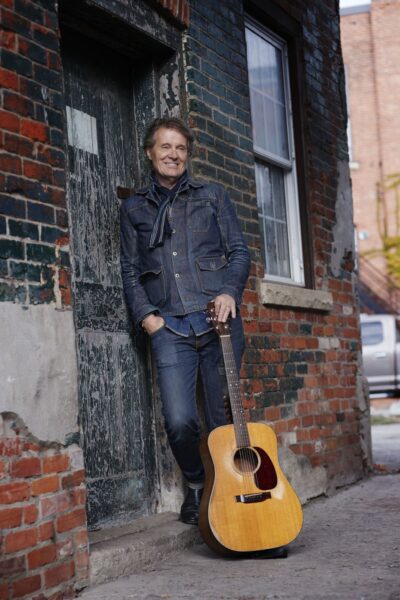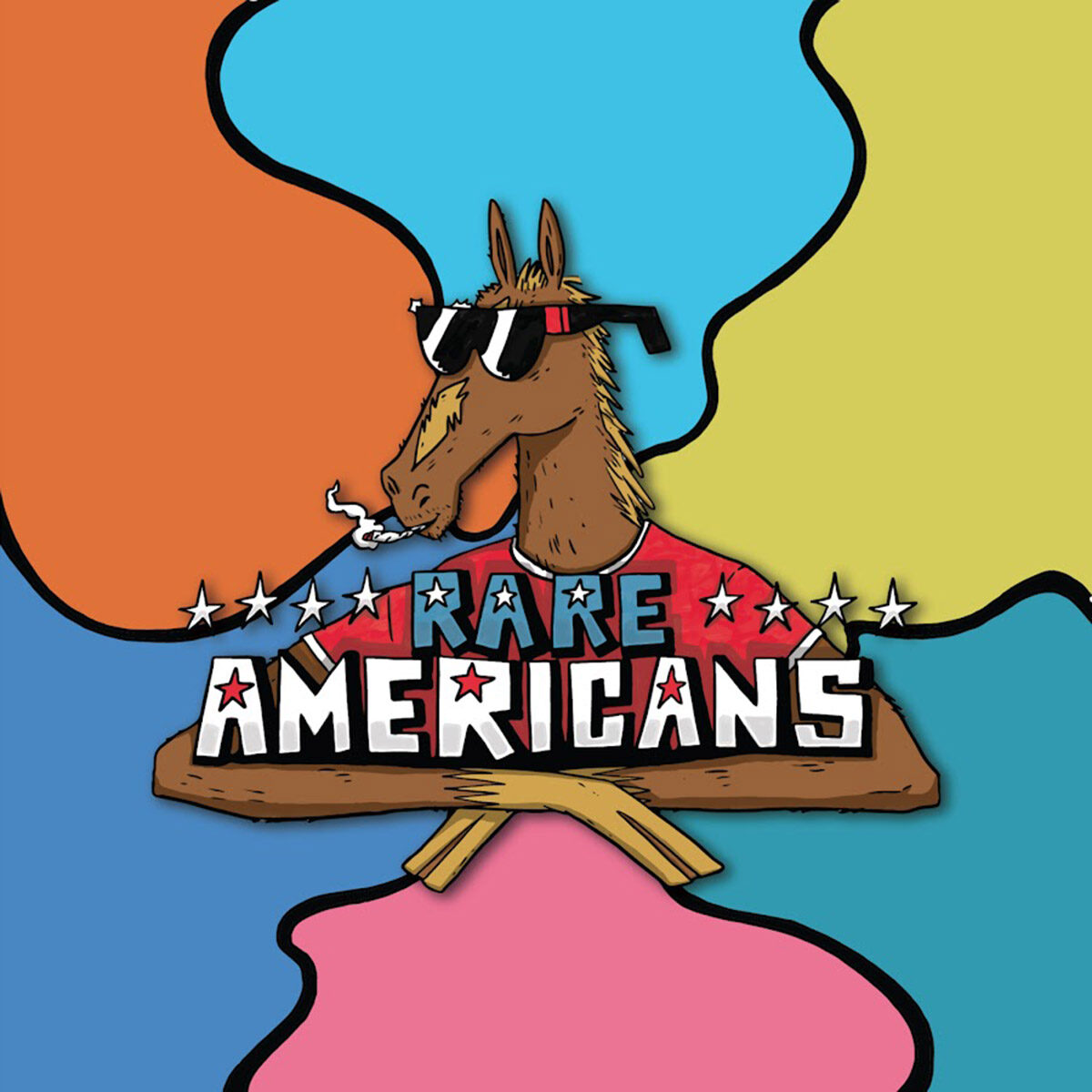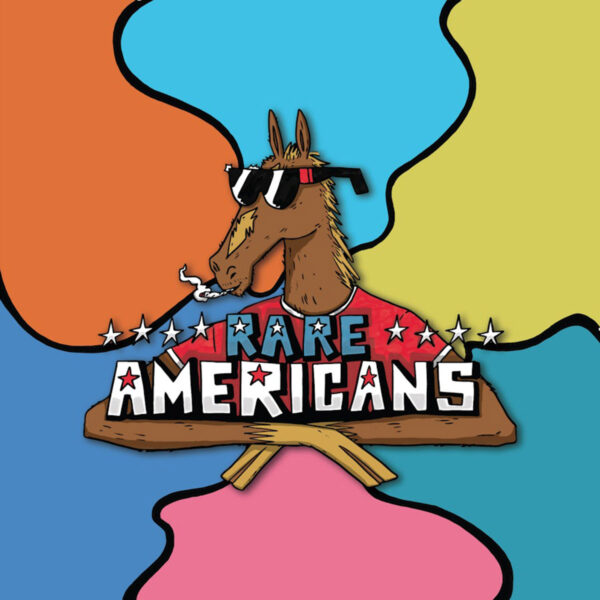The Band, The Band album cover photo, John Joy Road, Woodstock, NY, 1969. (L-R: Richard Manuel, Levon Helm, Rick Danko, Garth Hudson, Robbie Robertson) (Photo: © Elliott Landy, LandyVision Inc.)
By Best Classic Bands’ Staff
Robbie Robertson, as lead guitarist and songwriter considered to be the pivotal engineer of the quintessential Americana group—The Band—died today (August 9, 2023). News of his death at age 80 after a long illness was shared by his longtime manager, Jared Levine. With his passing, the sole remaining member of the Canadian-American quintet is keyboardist Garth Hudson, who turned 86 on Aug 2. Robertson was predeceased by Levon Helm (2012), Rick Danko (1999) and Richard Manuel (1986).
The statement announcing Robertson‘s death reads, “Robbie was surrounded by his family at the time of his death, including his wife, Janet, his ex-wife, Dominique, her partner Nicholas, and his children Alexandra, Sebastian, Delphine and Delphine’s partner Kenny. He is also survived by his grandchildren Angelica, Donovan, Dominic, Gabriel and Seraphina. Robertson recently completed his 14th film music project with frequent collaborator Martin Scorsese, Killers of the Flower Moon. In lieu of flowers, the family has asked that donations be made to the Six Nations of the Grand River to support the building of their new cultural center.”
Robertson, who turned 80 on July 5, had spearheaded a 2019 documentary, Once Were Brothers: Robbie Robertson and The Band, which follows him from his early life in Toronto and on the Six Nations of the Grand River reserve, in Southern Ontario, as he became an adept guitarist and songwriter. It follows his path as he joined drummer Helm, and then keyboardists Garth Hudson and Richard Manuel, and bass guitarist Rick Danko, as the touring musicians for singer Ronnie Hawkins; then as the backing band for Bob Dylan in 1965 and 1966. That set the stage for the five “brothers” to band together in their own group.
Influential manager Albert Grossman had seen Elliott Landy’s photos of another one of his clients, Janis Joplin, and, trusting his instincts, offered Landy an assignment to “take some pictures in Toronto.”
“Of who?” Landy asked.
“They don’t have a name yet,” was Grossman’s reply.
On the day that Robertson died, Landy wrote, in tribute: I am deeply grateful to Robbie and the other members of The Band for their foresight in recognizing the promise that I had as a young photographer and giving me the opportunity to photograph them for Music From Big Pink—the first record album I took photos for. This is a deeply personal loss. Even though I had not worked with him since those years, the connection between his work and mine remains a very important part of my life.
My condolences to his family
With love and respect.
– Elliott Landy
Other Robbie Robertson tributes…
Noted music author Robert Hilburn was one of the first to pay tribute to Robertson. “The news of Robbie Robertson’s death today at the age of 80 is stunning. From his days with the Band and Dylan on, he seemed so youthful, sharp and alert, always looking forward to something. Such great songs: The Weight, Dixie Down. Classic rock figure.”
Keifer Sutherland wrote, “The loss of Robbie Robertson is heartbreaking. Canada has lost an icon, and music has lost a poet and a scholar.”
Canadian Prime Minister Justin Trudeau also paid tribute to a native son. “Guitarist. Songwriter. Storyteller. Robbie Robertson was a big part of Canada’s outsized contributions to the arts. I’m thinking of his family, friends, and fans who are mourning his loss. Thank you for the music and the memories, Robbie.”
Scorsese released a statement honoring his longtime collaborator. “I could always go to him as a confidante. A collaborator. An advisor. I tried to be the same for him.
“Long before we ever met, his music played a central role in my life — me and millions and millions of other people all over this world. The Band’s music, and Robbie’s own later solo music, seemed to come from the deepest place at the heart of this continent, its traditions and tragedies and joys. It goes without saying that he was a giant, that his effect on the art form was profound and lasting. There’s never enough time with anyone you love. And I loved Robbie.”
Born Jaime Royal Robertson on July 5, 1943, in Toronto, the musician known as Robbie Robertson began playing guitar as a child and joined the band Little Caesar and the Consuls while in his teens. In 1957, he formed Robbie and the Rhythm Chords, which became Robbie and the Robots. He joined Hawkins’ outfit first as bassist, then switched to lead guitar. By 1961, the other future members of the Band had all joined with Hawkins, with whom they toured in 1962-63, also recording with that lineup for Roulette Records.
The five musicians left Hawkins in 1964 to go out on their own, changing their name to Levon and the Hawks, performing gigs in the U.S. while recording with blues artist John Hammond and others. In the summer of 1965, Robertson was sought as a member of Bob Dylan’s backing band by the singer-songwriter’s manager Albert Grossman. The guitarist, and drummer Helm, performed a couple of live dates with Dylan, who later hired the entire Levon and the Hawks group as his backing band from October-December 1965 and again in early 1966. The spring European leg of the tour was filmed by documentarian D.A. Pennebaker, but the result was unreleased. Robertson also recorded with Dylan on the Blonde on Blonde album, released in 1966.
In July 1966, Dylan was involved in a near fatal motorcycle accident in the Woodstock, N.Y., area, and withdrew from the public eye, living in a house that came to be known as Big Pink. Starting in 1967, he and the Hawks rehearsed and recorded in the basement of the house, the results later to be released, first on bootlegs and eventually legitimately, as The Basement Tapes. (Helm, who had left the group for a while, had returned by this time.)
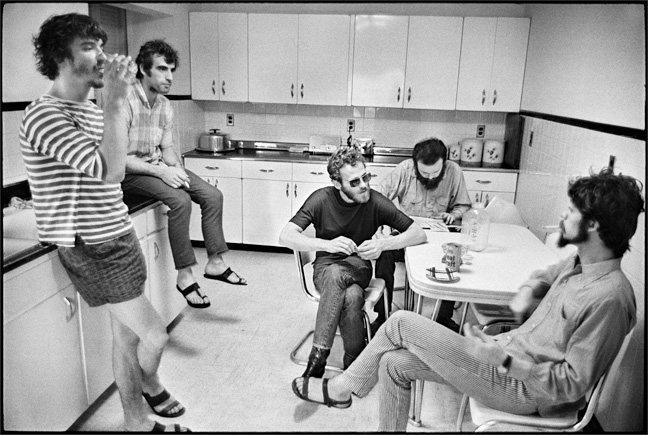
While living in the communal house, the five members of the Hawks recorded their own debut album, released in 1968 as Music From Big Pink. In addition to new Dylan numbers, the album, which became a critical sensation, included a few songs written by Robertson, among them “The Weight,” which has since become a rock standard covered by numerous artists.
Taking on the name The Band, the quintet recorded its second album, a self-titled affair, in 1969, including such rock staples as “The Night They Drove Old Dixie Down” and “Up on Cripple Creek.” The Band performed at Woodstock that summer and continued touring and making albums until 1976, when they decided to call it quits. The Band went out in a blaze of glory, assembling an all-star cast for a show at San Francisco’s Winterland that was dubbed The Last Waltz. The same-titled Martin Scorsese documentary of the event is considered one of the best rock concert films of all time.
Robertson refused all offers to join the other former members of The Band in reunion projects, opting for a solo career instead. He released his self-titled debut solo album in 1987, followed by several others, the last being 2019’s Sinematic. He was also heavily involved in composing film music, working on more than two dozen soundtracks, many with Scorsese.
He also produced music for others during his career, including Neil Diamond, Tom Petty and Roy Orbison.


